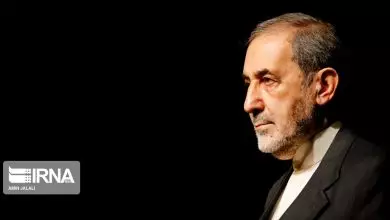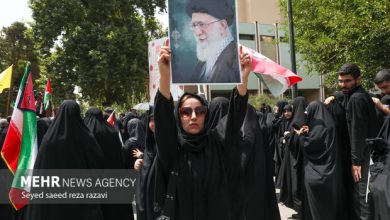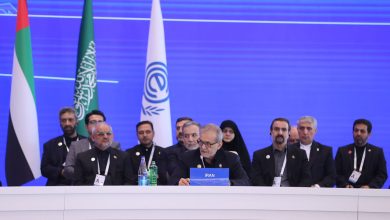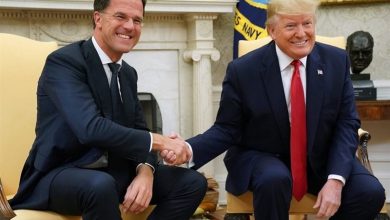Lebanon PM says coup attempt fell apart after violent riots
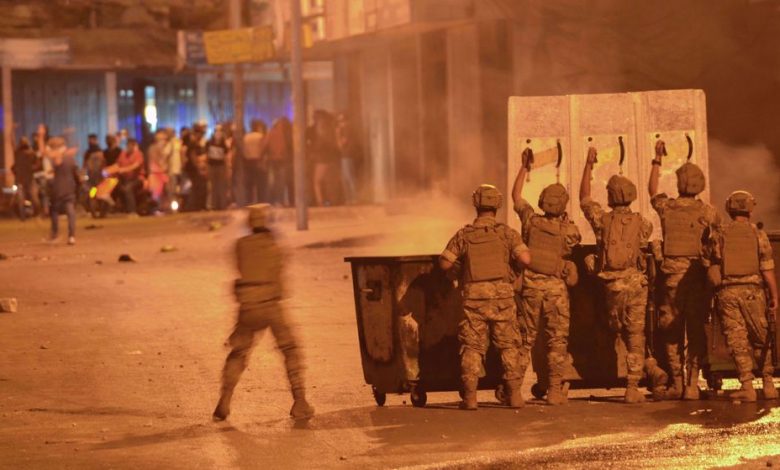
Lebanon’s Prime Minister Hassan Diab has condemned violent street protests on Thursday, saying they were an attempt by opponents to overthrow his government and deepen a currency crisis in the debt-ridden country.
Diab made the remarks in a televised address late Saturday after demonstrations rocked the cities of Beirut, Tripoli and Sidon, with participants calling for the government’s resignation.
He said his political opponents were stirring unrest in a bid to thwart the government’s fight against corruption.
The unrest was “a programmed campaign organized by parties known by name and method of thinking that are not deterred from using any method to shatter the image of others,” Diab said.
However, the Lebanese administration enjoys “a high percentage of citizens’ confidence, which has disturbed many of those who bet on its failure” and try to pump “lies and rumors to prevent the government from removing the rubble under which the secrets of corruption disappear,” he added.
Diab took office in January with Hezbollah’s backing, putting an end to a nine-month political deadlock amid an economic crisis and nationwide protests against the nation’s ruling class.
In his televised address Saturday, the Lebanese premier censured efforts to mount a “coup” against the government and manipulate the value of the Lebanese pound.
“The state and the people are being subjected to blackmail,” Diab said as he vowed to defeat graft in the cash-strapped country.
“The coup attempt fell apart and all secret and public meetings and orders of internal and joint operations to stop discovering of corruption failed as well,” he added.
Anti-government protests broke out in Lebanon on Thursday after a rapid devaluation of the national currency against the US dollar. The Lebanese pound has lost some 70 percent of its value over the past several months.
The crash in the Lebanese pound’s value and subsequent unrest coincided with the unveiling of the biggest-ever US sanctions package against Iran, which also targets Lebanon.
The 115-page strategy document put together by the Republican Study Committee (RSC), the largest Republican caucus in Congress, called for a halt of all US security assistance to Beirut, claiming that millions of dollars given to Lebanon were being used to aid Hezbollah.
The US gives about $160 million to the Lebanese armed forces each year.
The Republican document specifically calls for sanctions against Hezbollah allies, mentioning former foreign minister Gibran Bassil and incumbent Parliament speaker Nabih Berri by name.
Back in 2016, Saudi Arabia also declared that it was canceling $4 billion in aid pledged to Beirut, $3 billion of which was earmarked for the Lebanese army.
Latest street rallies resembled those that broke out in Lebanon on October 17, 2019, when the government introduced a set of economic austerity measures.
Then prime minister Saad al-Hariri resigned almost two weeks later under pressure from protesters, touching off a period of political turmoil at a time of acute economic crisis.
In December 2019, Diab was tasked with forming the new administration and the following month, he managed to form a government after Hezbollah and its allies agreed on the new cabinet.
The downward political spiral for Hariri followed his humiliating saga in Saudi Arabia where he announced his surprise resignation in November 2017, apparently under the orders of Saudi rulers.
Hariri rescinded his withdrawal after returning to Lebanon, apparently putting himself on a collision course with his Saudi mentors, which culminated in his resignation amid violent riots.
According to a UN report, Hariri was verbally humiliated and beaten after being summoned to Riyadh in 2017. He was reportedly abducted and taken to the Riyadh Ritz-Carlton hotel where he was interrogated and subjected to “cruel, inhuman and degrading” treatment.

